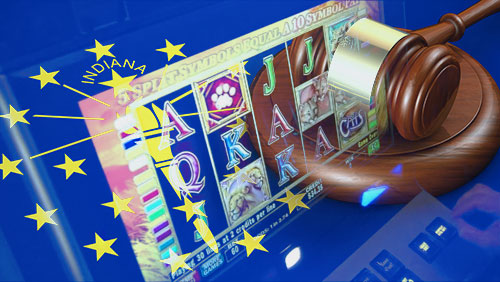Casino-like gambling terminals in bars may become available in bars in the state of Indiana if lobby group succeeds in its legalization campaign.
 The Indiana Amusement and Music Operators Association, Indiana Licensed Beverage Association, Indiana Bowling Centers Association, and others have called on legislators to pass a bill to legalize video game terminals.
The Indiana Amusement and Music Operators Association, Indiana Licensed Beverage Association, Indiana Bowling Centers Association, and others have called on legislators to pass a bill to legalize video game terminals.
According to news website Fox59, the terminals are essentially electronic video games where participants gamble on a variety of games including poker, line-up or blackjack. Currently, those kind of games are only allowed in casinos.
These groups are now seeking Congress’ approval allowing these terminals in a variety of other places including bars and truck stops. The coalition has reportedly drafted a bill for legalized gaming terminals in bars, VFW and American Legion posts, bowling alleys, and truck stops.
In the group’s draft bill, they suggested that the wagers will be limited to $2 at most, with the maximum payout $599. Those who are under 21-years-old will not be allowed to wager. So far, no legislators have publicly said they’ll sponsor the legislation.
“Basically what we’re trying to do is create revenues for local businesses and local communities through VGT’s, which they have done in Illinois very successfully. … We’re trying to mirror that effort,” Bill Smythe, a lobbying for IAMOA, said. “They’re up to almost 22,000 machines now generating almost a billion dollars in revenues, which nets the state about $300 million.”
The group had earlier filed a similar proposal to Congress but it was quickly shot down in the last session. Smythe is confident that legislators will take a second look at the proposed bill especially since they already indicated how much the revenue the games will generate for businesses and for the state.
“We adjusted our bill last session to accommodate for 80 percent of the taxation to be applied to road infrastructure and of that, half goes to the state and half goes to local communities,” Smythe said. “It’s really as simple as that, there’s going to be a tax or they can use the revenues generated from this.”
Smythe said the groups have been in talks with legislators on both sides of the aisle, and are hoping to benefit from the upcoming election.